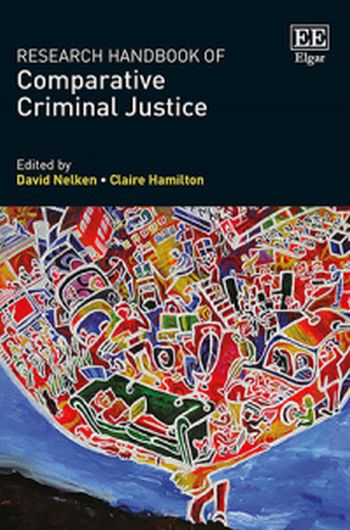
With contributions from leading experts in the field, this timely Research Handbook reconsiders the theories, assumptions, values and methods of comparative criminal justice in light of the challenges and opportunities posed by globalisation, deglobalisation and transnationalisation.
Chapters address the traditional objects of inquiry of the criminal justice system – policing, prosecution and prisons – while also offering reflections on surveillance, the rise of risk within justice, and algorithmic justice. They discuss transnational crimes and misbehaviours, such as breaches of human rights, environmental degradation, and irregular migration, and examine interactions and flows between the national and the international on issues such as the death penalty, terrorism and juvenile justice. The Research Handbook also analyses crimes and behaviours associated with the 'dark side' of globalisation, providing a critical discussion of proposed remedies for the problems posed by globalisation.
Probing the connections between globalisation and criminal policy, this innovative Research Handbook will be an ideal read for scholars and students of comparative criminal justice or comparative criminology. Academics in cognate disciplines such as law, sociology, politics and anthropology will also benefit from this resource.